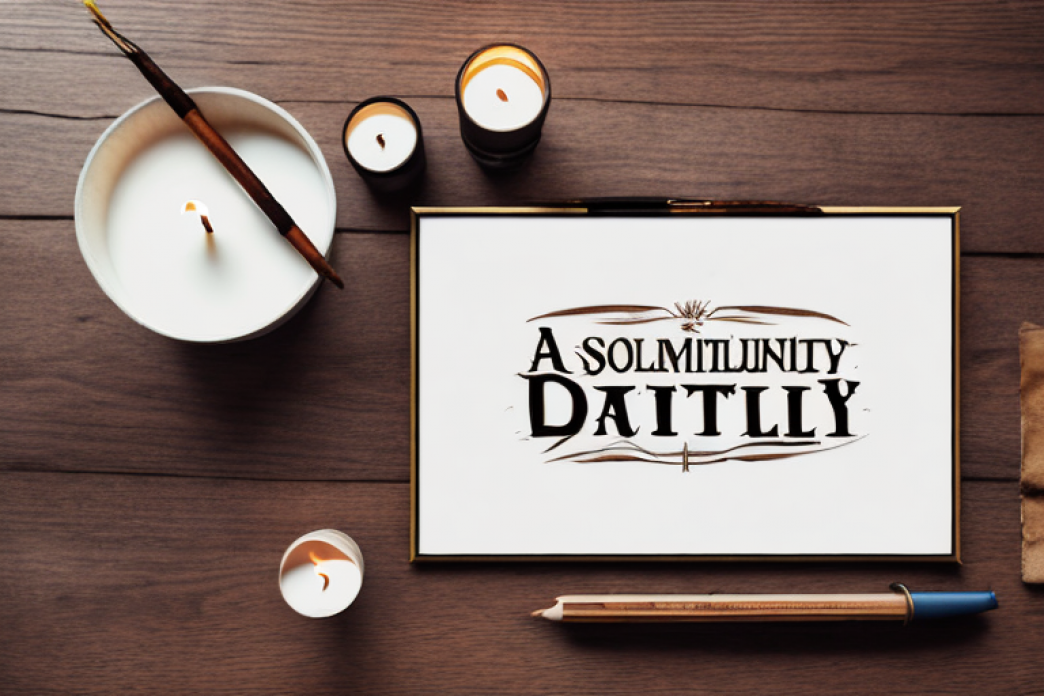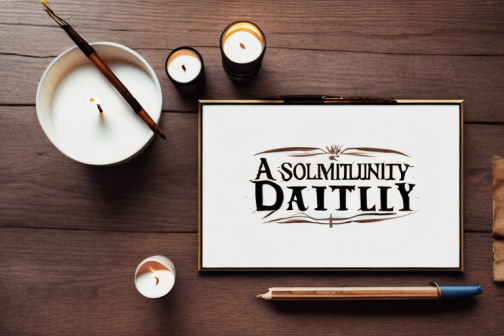In life, death is an inevitable part of the cycle. It is a topic that arouses a wide range of emotions, from fear and sadness to curiosity and wonder. Throughout history, countless individuals have pondered the mysteries and complexities surrounding death, leaving behind a tapestry of death messages and quotes that continue to inspire and provoke thought long after they are uttered. Today, we dive into the realms of mortality and explore the profound words shared by famous authors and personalities, as well as analyze the underlying themes and meanings behind these final messages.
Introduction
As human beings, we often find solace in the wisdom of others, even in matters as sensitive as death. The utterances of renowned figures, renowned for their insight and understanding, can illuminate our own journey through life's most uncertain moments. Within these messages and quotes lies not only glimpses of mortality, but also profound reflections on the purpose and significance of our existence.
Let us embark on this introspective journey as we uncover the essence of death messages and the impact they have on our understanding of life.
Death, a topic that has fascinated and perplexed humanity since the dawn of time, is a universal experience that binds us all together. It is a subject that evokes a myriad of emotions, from fear and sadness to contemplation and acceptance. Throughout history, great minds have grappled with the concept of death, seeking to make sense of its inevitability and find meaning within its embrace.
One such renowned figure, the ancient Greek philosopher Socrates, once said, "Death may be the greatest of all human blessings." These profound words challenge our conventional understanding of death as a tragedy, inviting us to consider it as a release from the burdens of life. Socrates believed that death frees the soul from the limitations of the physical world, allowing it to transcend to a higher realm of existence.
On the other hand, the famous Mexican artist Frida Kahlo had a different perspective on death. In her artwork, she often depicted death as a constant companion, a reminder of the fragility of life. For Kahlo, death served as a catalyst for creativity and self-reflection. Through her paintings, she explored the intricate relationship between life and death, capturing the beauty and pain that coexist within the human experience.
As we delve deeper into the realm of death messages, we encounter a rich tapestry of thoughts and beliefs from various cultures and time periods. From the ancient Egyptian Book of the Dead, which provided guidance for the deceased in their journey to the afterlife, to the modern-day practice of writing condolence letters, death messages have served as a means of expressing grief, offering comfort, and honoring the departed.
Furthermore, death messages have the power to shape our understanding of life and our place in the world. They remind us of the fleeting nature of our existence and urge us to live each day to the fullest. They prompt us to reflect on our priorities, relationships, and the legacy we leave behind. In a society that often avoids discussions about death, these messages provide a space for contemplation and introspection, inviting us to confront our own mortality.
Join us on this exploration of death messages as we unravel the profound insights they offer, the emotions they evoke, and the impact they have on our understanding of life. Through the words of philosophers, artists, and ordinary individuals, we will navigate the intricate tapestry of death and discover the transformative power it holds.
Quotes from Famous Authors and Personalities
Throughout history, celebrated authors and personalities have left us with poignant words that resonate deeply within our souls. Their quotes span the spectrum of emotions associated with death, offering the reader a profound perspective on mortality. Each of these words holds the power to ignite a spark within us, to urge us to contemplate the brevity of life and the significance of the legacy we leave behind.
One such memorable quote is from the renowned poet Robert Frost, who wrote, "In three words I can sum up everything I've learned about life: it goes on." These simple yet powerful words remind us of the never-ending cycle of life and death, urging us to embrace the present and find meaning in every fleeting moment.
"In three words I can sum up everything I've learned about life: it goes on." - Robert Frost
Robert Frost's quote encapsulates the essence of life's continuity. It reminds us that no matter what challenges we face or losses we endure, life continues its relentless march forward. It is a call to accept the inevitability of change and to find solace in the knowledge that even in the face of adversity, life persists.
Similarly, the influential writer and philosopher, Ralph Waldo Emerson, addressed the fragility of life in his famous quote, "To be yourself in a world that is constantly trying to make you something else is the greatest accomplishment." These words encourage us to live authentically, embracing our own truths and values, as we navigate the uncertainty of existence.
"To be yourself in a world that is constantly trying to make you something else is the greatest accomplishment." - Ralph Waldo Emerson
Ralph Waldo Emerson's quote serves as a reminder that societal pressures and expectations can often lead us astray from our true selves. It emphasizes the importance of staying true to our own beliefs and values, even in the face of conformity. By embracing our individuality, we can find fulfillment and achieve greatness in our own unique ways.
As we delve into the profound thoughts of these exceptional individuals, we are reminded that death messages hold the power to comfort, inspire, and instigate personal transformation. The words of Robert Frost and Ralph Waldo Emerson serve as guiding lights, illuminating the path towards a deeper understanding of life's complexities and the importance of embracing our own truths.
Finally, our favourite 20 Death Messages
- "Death is not the opposite of life, but a part of it." - Haruki Murakami
- "The boundaries between life and death are at best shadowy and vague. Who shall say where one ends and the other begins?" - Edgar Allan Poe
- "To the well-organized mind, death is but the next great adventure." - J.K. Rowling
- "Death is nature's way of telling you to slow down." - Dick Sharples
- "It is not death that a man should fear, but he should fear never beginning to live." - Marcus Aurelius
- "Death is nothing, but to live defeated and inglorious is to die daily." - Napoleon Bonaparte
- "Our death is not an end if we can live on in our children and the younger generation. For they are us, our bodies are only wilted leaves on the tree of life." - Albert Einstein
- "The idea is to die young as late as possible." - Ashley Montagu
- "Death is only the end if you assume the story is about you." - Welcome to Night Vale
- "The fear of death follows from the fear of life. A man who lives fully is prepared to die at any time." - Mark Twain
- "Death is a challenge. It tells us not to waste time… It tells us to tell each other right now that we love each other." - Leo Buscaglia
- "Death ends a life, not a relationship." - Mitch Albom
- "Life is for the living. Death is for the dead. Let life be like music. And death a note unsaid." - Langston Hughes
- "Death is not extinguishing the light; it is only putting out the lamp because the dawn has come." - Rabindranath Tagore
- "The tragedy of life is not that it ends so soon, but that we wait so long to begin it." - W.M. Lewis
- "Death is the dropping of the flower that the fruit may swell." - Henry Ward Beecher
- "Death is not the greatest loss in life. The greatest loss is what dies inside us while we live." - Norman Cousins
- "Death is a distant rumor to the young." - Andy Rooney
- "Death is something inevitable. When a man has done what he considers to be his duty to his people and his country, he can rest in peace." - Nelson Mandela
- "The life of the dead is placed in the memory of the living." - Marcus Tullius Cicero
Exploring the Themes of Death Messages
Beyond the words themselves, death messages often explore a range of universal themes that connect us all. From the inevitability of death to the concept of legacy and the transient nature of life, these messages delve deep into the human experience, encouraging us to reflect and question our own mortality.
One prevalent theme found in death messages is the concept of seizing the day, or "carpe diem" as famously coined by the poet Horace. These messages remind us that life is fleeting and urge us to live each day to the fullest, cherishing every moment and embracing new experiences.
Carpe diem, a Latin phrase that translates to "seize the day," encapsulates the essence of this theme. It serves as a powerful reminder that life is not infinite and that every passing moment is an opportunity to make the most of our existence. Death messages that embody this theme often encourage us to step out of our comfort zones, to take risks, and to pursue our passions with unwavering determination.
Furthermore, these messages emphasize the importance of cherishing every moment. They remind us that life is a collection of fleeting instances, and it is our responsibility to savor each one. Whether it is witnessing a breathtaking sunset, sharing laughter with loved ones, or embarking on a new adventure, death messages inspire us to embrace these experiences wholeheartedly, knowing that they contribute to the richness of our lives.
Another prominent theme lies in the notion of accepting our mortality and finding peace within it. Death messages often encourage us to confront our fears and embrace the impermanence of all things, recognizing that death is an inevitable part of the human experience.
This theme prompts us to reflect on the transient nature of life and the significance of our actions in the grand scheme of things. It urges us to let go of the trivial and focus on what truly matters, fostering a sense of clarity and purpose. By acknowledging our mortality, we are driven to live authentically, to cultivate meaningful relationships, and to leave a lasting impact on the world.
Through the exploration of these themes, we gain a deeper understanding of our own mortality and are propelled to approach life with newfound appreciation and purpose.
Death messages serve as poignant reminders of the fragility and beauty of life. They encourage us to contemplate our existence, to embrace the present moment, and to make the most of our limited time on Earth. By exploring the themes of seizing the day and accepting our mortality, these messages inspire us to live with intention, to pursue our dreams relentlessly, and to leave a legacy that transcends our physical presence.
Ultimately, death messages provide us with an opportunity for introspection and personal growth. They remind us that life is a precious gift, and it is up to us to make it meaningful. By reflecting on these themes, we can find solace in the face of mortality and strive to live a life that is both fulfilling and purposeful.
Uncovering the Meaning Behind Final Words
As we near the end of our exploration, it is important to reflect on the meaning behind the final words uttered by individuals as they approach the threshold of death. These messages, often articulated in moments of great vulnerability, can provide profound insights into the human experience and offer solace to those who are left behind.
The meanings behind these final utterances are as diverse as the individuals themselves. Some may use their last breaths to express profound love and gratitude, offering comfort to their loved ones and enabling closure in the face of loss. In these moments, the weight of their words can be felt, as if they are wrapping their loved ones in a warm embrace, providing reassurance that they will always be cherished and remembered.
Others may find solace in sharing wisdom and life lessons they have gathered throughout their journey, leaving behind a legacy of inspiration and guidance. These final words become a beacon of light, illuminating the path for those who come after them. They offer a chance for reflection and introspection, encouraging others to live a life of purpose and meaning.
Moreover, the final words spoken by individuals on the brink of death can also serve as a powerful reminder of the transient nature of life. In these moments, the veil between the physical and spiritual realms seems to thin, allowing for profound insights and revelations. It is as if these individuals have gained a heightened sense of clarity, understanding the true essence of existence.
These final words not only provide comfort and guidance to those left behind, but they also offer an opportunity for personal growth and transformation. They remind us of the importance of living authentically, of embracing our passions and pursuing our dreams. They encourage us to mend broken relationships, to forgive and seek forgiveness, and to appreciate the beauty and fragility of life.
Ultimately, the meaning behind these final words lies in their ability to remind us of the fleeting nature of life and the importance of cherishing the moments we have. They serve as a potent reminder to live authentically, love boldly, and leave a lasting impact on the world. In these final utterances, we find a profound connection to our shared humanity, a reminder that we are all part of a larger tapestry, woven together by the threads of love, compassion, and understanding.
In Conclusion
Death messages and quotes have the remarkable ability to transcend time and space, inviting us to contemplate the profound mysteries of life and mortality. From the words of celebrated authors and personalities to the exploration of universal themes and the meaning behind final utterances, we have delved into the profound depths of death's influence on humanity.
May these messages and quotes serve as a guiding light, encouraging us to live with purpose, find solace in our mortality, and leave behind a legacy that will inspire generations to come.
Recommended Memorial Products
- In Loving Memory Tabletop Plaque — Engrave their favorite quote on a beautiful plaque
- Malister Memorial Crystal Heart — Hand-crafted crystal heart keepsake with a comforting memorial inscription.
- A Grief Observed — C.S. Lewis's timeless words on grief and loss
- Share a Memory Cards — Elegant 4x6 memory cards for celebrations of life, funerals, and memorial gatherings.


-banner.png)






